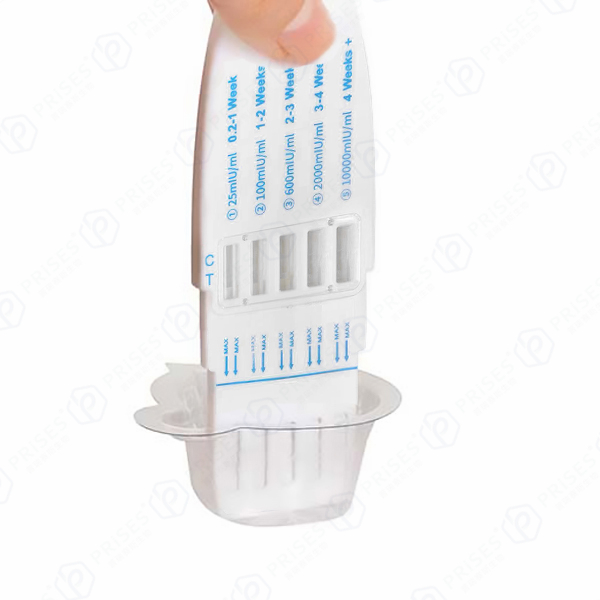Aug . 20, 2024 21:08 Back to list
Affordable Bulk Pregnancy Test Kits for Wholesale Purchase and Resale Opportunities
Understanding Wholesale Pregnancy Kits A Comprehensive Guide
In recent years, the demand for pregnancy testing solutions has surged, making wholesale pregnancy kits an essential product in the healthcare and personal care sectors. Pregnancy kits provide individuals with the means to confirm their pregnancy status conveniently and privately, whether at home or in clinical settings. This article delves into the significance, types, benefits, and considerations associated with wholesale pregnancy kits.
The Significance of Pregnancy Kits
Pregnancy kits serve a crucial role in reproductive health, offering a straightforward method for individuals to check for pregnancy. The kits typically work by detecting the hormone human chorionic gonadotropin (hCG) in urine, which is present shortly after a fertilized egg implants in the uterus. Early detection of pregnancy can significantly influence medical care and personal decisions, allowing individuals to consider options and seek early prenatal care if necessary.
Types of Pregnancy Kits
There are various types of pregnancy kits available in the market, catering to different preferences and needs. The most common types include
1. Urine Test Kits These are the most prevalent type of pregnancy tests. They are simple to use and provide results within minutes. Most kits come with an instruction manual, and some may include a digital display for clearer results.
2. Blood Test Kits Although typically used in clinical settings, there are wholesale options available for blood test kits that measure hCG levels. Blood tests can provide more accurate and earlier results than urine tests.
3. Digital Test Kits These innovative pregnancy tests display results in a digital format, often indicating how many weeks pregnant a person may be. They reduce ambiguity that might arise from interpreting line-based results, making them a popular choice among users.
Benefits of Wholesale Pregnancy Kits
Purchasing pregnancy kits wholesale offers several advantages for healthcare providers, retailers, and consumers alike
1. Cost-Effectiveness Buying in bulk often results in significant cost savings. Retailers and clinics can lower their procurement costs and pass those savings on to consumers, helping to make pregnancy tests more accessible.
wholesale pregnancy kit

2. Availability Wholesalers typically maintain a steady inventory of pregnancy kits, ensuring that healthcare facilities and retailers have a consistent supply to meet consumer demands.
4. Diverse Product Range Wholesalers often stock a variety of pregnancy tests, from traditional strips to advanced digital tests. This variety allows retailers to meet the diverse preferences of their customers.
Considerations When Purchasing
While wholesale pregnancy kits offer many benefits, there are several considerations that buyers should keep in mind
1. Expiry Dates Pregnancy tests have a shelf life, and it is vital to check expiration dates when purchasing kits in bulk to avoid selling expired products.
2. Quality and Certification Ensure that the wholesale supplier offers high-quality products that have been certified and comply with relevant health regulations.
3. User Instructions Proper use of pregnancy kits is critical for accurate results. Ensure that the wholesale kits come with clear instructions and consider including educational brochures for end-users.
4. Storage Conditions Consider the storage requirements for pregnancy kits to ensure that they maintain efficacy over time.
Conclusion
Wholesale pregnancy kits have transformed the way individuals and healthcare providers approach pregnancy testing. With various options available and the added benefits of cost savings and accessibility, these kits play a vital role in reproductive health. By considering the types of kits available and partnering with reputable suppliers, retailers and healthcare professionals can offer reliable and effective products to meet the needs of their customers. As we move forward, the importance of accessible and accurate pregnancy testing will continue to grow, making wholesale pregnancy kits an indispensable resource in healthcare.
-
Dengue NS1 Rapid Diagnostic Test Kit
NewsMar.07,2025
-
Dengue NS1 Rapid Diagnostic Test Kit
NewsMar.07,2025
-
Dengue NS1 Rapid Diagnostic Test Kit
NewsMar.07,2025
-
Transferrin Rapid Test Cassette Tumor Marker TF Card
NewsMar.07,2025
-
Malaria Pf Pan Rapid Diagnostic Test Kit
NewsMar.07,2025
-
malaria pf / pan ag rapid test
NewsMar.07,2025

